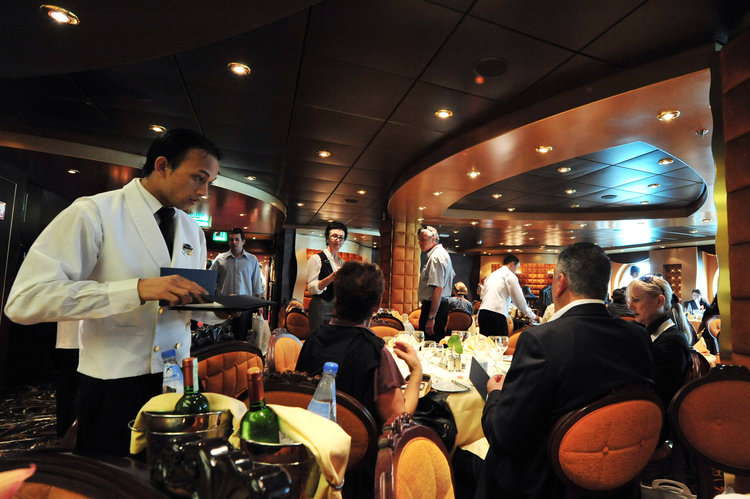I just returned from my Panama Canal cruise. Reflections:
1. As I’ve mentioned before, cruises are in one sense a great test case for open borders. Workers from all over the world come together to run one some of the world’s most sophisticated technology and please some of the world’s most demanding customers. Most of the workers’ lives are harsh by First World standards but great by Third World standards. And wherever they’re from, the staff work together like Prussian officers. It’s a marvel of multinational management.
2. As I’ve also mentioned, though, the entire cruise industry also depends on immigration restrictions. Cruising is affordable because labor costs are very low by First World standards. Under open borders, these well-trained, highly motivated maritime workers would take advantage of the far better job opportunities available on dry land, drastically raising the price of cruising.
3. If you’ve ever wondered if capitalism is turning human beings into machines, taking a cruise will feed your fears. The cabin stewards, for example, spend 10-12 hours a day making every room on their watch spotless. Then they disappear into the lightness belly of the ship, re-emerging the next day to begin their duties again. An occasional shore leave aside, they work seven days a week.
4. If you’ve ever wondered if cosmopolitanism can really function, taking a cruise will feed your hope. Filipinos, Mexicans, Ukrainians, Romanians, Jamaicans, Chinese, Brazilians, and dozens of other nationalities don’t just “get along.” They show more team spirit than any American workforce I’ve seen.
5. Modern American politics vanish on a cruise ship. There’s zero social justice rhetoric or attitude to be found; passengers and crew all take severe inequality for granted. You might think that’s because the customers are demographically Republican, but there’s also zero nativist rhetoric or attitude to be found. Elderly American Republican guests interact amicably with foreigners of every description. There’s no sign that they’re “making an effort” to overcome their xenophobia; they just apolitically accept the cosmopolitan world that surrounds them. The cruise culture runs on good manners and shared humanity, not identity politics. And yes, you really can turn the identity volume dial close to zero – which is where it belongs.
6. What does the crew think about global development in general, or immigration restrictions in particular? I didn’t want to make them uncomfortable, so I didn’t ask… but their actions speak louder than words. I’d guess that 90% of the workers originate from the Third World. The fact that they’ve left their home countries behind to serve spoiled First Worlders is a deafening vote of no confidence in their societies of birth. And when I see the this massive ship running like clockwork, it’s easy to see the wisdom of their decision. Business isn’t perfect, but it far more deserving of their admiration and loyalty than the demagogic governments they’ve left behind.



